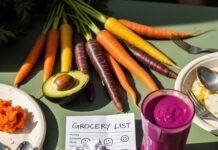Sustainable Agriculture’s Got Me Acting Unwise
So, sustainable agriculture is legit turning the food world upside down, and I’m, like, way too into it. Picture me last weekend in my backyard in Ohio, knee-deep in mud, trying to save my sorry-looking zucchini from some evil bugs. I’m sweating buckets, dirt’s caked in my hair, and I’m googling “compost tea” like it’s gonna fix my life. I’m no farmer—seriously, I killed a cactus once—but sustainable agriculture’s got me hooked. It’s not just some crunchy buzzword; it’s changing how we grow food, from my sad little garden to those fancy vertical farms I keep seeing on X.
Sustainable agriculture’s about growing food without screwing the planet. Like, regenerative ag stuff—cover crops, no chemicals, natural pest control. I tried that last one and, uh, the bugs threw a party. Big L for me. I found this USDA organic farming guide super helpful, even if I totally misread it and flooded my spinach. My bad.
My Disaster of a Garden and Eco-Friendly Farming
Sustainable Agriculture’s Not Just for Granola Types
Okay, I used to think sustainable agriculture was for people who, like, weave their own sandals or whatever. But nah, it’s everywhere now. I was at this farmer’s market in Columbus a few weeks ago, right, and this dude was selling these funky heirloom carrots. I grabbed some to feel bougie, and they tasted like straight-up magic. Got me curious about regenerative agriculture—y’know, rotating crops, building up soil. Then I saw this National Geographic article on vertical farms, and I’m like, wait, we’re growing lettuce in skyscrapers now? That’s nuts.
Here’s the cringey part: I tried some eco-friendly farming hacks in my backyard, and it was a total trainwreck. I got all excited about companion planting—marigolds next to my beans to scare off bugs. Yeah, the bugs didn’t care, and my beans look like they got in a fight with a lawnmower. I’m still picking aphids out of my socks. Learning curve, I guess.

How Green Farming’s Messing with the Food Industry
Sustainable Agriculture’s Making Food Taste Way Better
The food industry’s getting a major facelift with sustainable agriculture. It’s not just my local co-op with their overpriced quinoa bowls. Big farms are using drones to check soil, and there’s apps to stop food waste—wild, right? I was at this diner in Cleveland last week, munching on a burger, and the menu was all “regeneratively sourced beef.” I’m like, what, diners are eco now? But it shows sustainable food systems are sneaking into real life.
Here’s the deal: green farming cuts down on chemical runoff that trashes rivers. Plus, the food’s tastier. I read this World Resources Institute piece about how regenerative ag boosts crops and saves water, which kinda blew my mind. But, real talk, why’s my grocery bill still ridiculous? Anyone?

My Kinda Terrible Tips for Sustainable Agriculture
Don’t Laugh at My Radishes, Okay?
I’m no expert—obviously—but here’s some tips for anyone trying sustainable agriculture without, like, moving to a farm. My backyard’s a mess, but I’ve learned a thing or two:
- Start super small. My first compost pile was a nightmare—smelled like a landfill and attracted every squirrel in Ohio. Start with a tiny bin and don’t add random leftovers like I did. Big mistake.
- Chat with farmers. I found a CSA through LocalHarvest, and the farmers were so chill, explaining soil stuff like I wasn’t a total noob. They’re basically my heroes now.
- It’s okay to suck. My garden’s a disaster, but I grew one decent radish last week, and I’m calling it a victory. Sustainable agriculture’s about trying, not perfection.
































